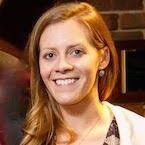- July 13, 2018
- Civic Analytics Network
This paper is part of the Civic Analytics Network initiative at Harvard's Ash Center.
INTRODUCTION
From remediating blight to optimizing restaurant inspections and pest control, cities across the country are using analytics to help improve municipal policy and performance. The continued adoption of analytics in city governments shows no sign of slowing, and as even more sophisticated tools such as machine learning and artificial intelligence are deployed, there is a critical need for research on how these practices are reshaping urban policy. By examining and capturing lessons learned from city-level analytics projects, practitioners and theorists alike can better understand how data- and tech-enabled innovations are affecting municipal governance. This report seeks to contribute to that developing field.
Members of the Civic Analytics Network, a peer group of leading urban chief data officers convened by the Harvard Ash Center, are using data-smart policymaking practices to develop, iterate, and replicate municipal analytics projects. The Civic Analytics Network was established as a community of practice in 2016 to support the growth and replication of analytics capacities in cities across the United States. Civic Analytics Network members represent many early leaders in urban analytics, and their cities’ analytics projects, policies, and approaches are at the forefront of this space. To help other cities learn how to use analytics to better serve their communities, this report profiles a selection of Civic Analytics Network city initiatives in areas ranging from municipal public safety and public health to housing and transportation.
A key component in creating, launching, and implementing an analytics project is adopting a systemic approach to project development. Whether a city has an established chief data officer position, an analytics team, or is a newcomer to public-sector data analytics altogether, there are various approaches and processes that can help initiate, scope, and implement a successful analytics project.
While many urban analytics projects have been largely successful in fulfilling their initial objectives and supporting better governance, most underwent multiple iterations. Furthermore, the continued expansion of data use in city government raises complex ethical questions that go to the core of American democracy. While more and more sophisticated technologies are being deployed to help improve government’s ability to serve the public, those new tools may be operating on assumptions or biases that will exacerbate, not ameliorate the challenges facing our most vulnerable populations. To successfully navigate this dynamic and rapidly evolving intersection of public policy and technology, government, at all levels, desperately needs better information on the state and implications of these new practices to help practitioners and academics alike find sustainable, equitable solutions.
To help capture lessons learned from both the technical and human side of city analytics, this report proceeds by: (1) introducing a five-step approach for developing an analytics project; (2) cataloging ten examples of Civic Analytics Network city analytics projects in the domains of public safety, housing, public health, and transportation; and (3) concluding with six policy recommendations for how other cities can implement analytics.





